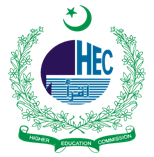Examining Expressions of Love: A Qualitative Analysis of Emotional Dynamics between Adult Men and Women in Sialkot, with a Focus on Asian Cultural Contexts
Keywords:
Love Expressions, Adults, Intimacy, Gender Roles, Love Styles, Emotional Dynamics, SialkotAbstract
Current research explored the influence of cultural norms and gender roles on the expressions of love and emotional intimacy among male and female adults in Sialkot, with a focus on how traditional Asian values shape these dynamics. Employing a cross-sectional research design with a mixed-methods approach, data were collected from 40 male and female participants aged 20-40, representing both rural and urban areas of Sialkot. The research highlights significant gender differences in emotional expression and intimacy. Findings indicate that men exhibit a higher expression of sexual desire (70%) and verbal communication of love (80%) compared to women (30% and 20%, respectively). Women, influenced by cultural norms promoting modesty and restraint, exhibit a higher fear of character assassination (60%) which restricts their ability to openly express their feelings. The study also reveals that men are more inclined towards romantic (Eros) and playful (Ludus) types of love, while both genders equally value friendship (Storge). Women tend to engage in intimacy without overt expressions of love more than men. Cultural norms and societal expectations in Sialkot reinforce traditional gender roles, leading to more subdued and private expressions of affection for women, while men navigate these norms with greater freedom. Positive emotional expression is crucial as it helps to mitigate emotional damage and promotes healthier interactions between genders. The study underscores the need for culturally sensitive educational programs and counseling services to address these gender-specific barriers and promote healthier emotional communication. The findings have implications for understanding the intersection of culture, gender, and emotional expression in romantic relationships within traditional Asian contexts.
Downloads
Published
Issue
Section
License
Copyright (c) 2024 Salbia Abbas, Rimal Malik

This work is licensed under a Creative Commons Attribution-NonCommercial 4.0 International License.








